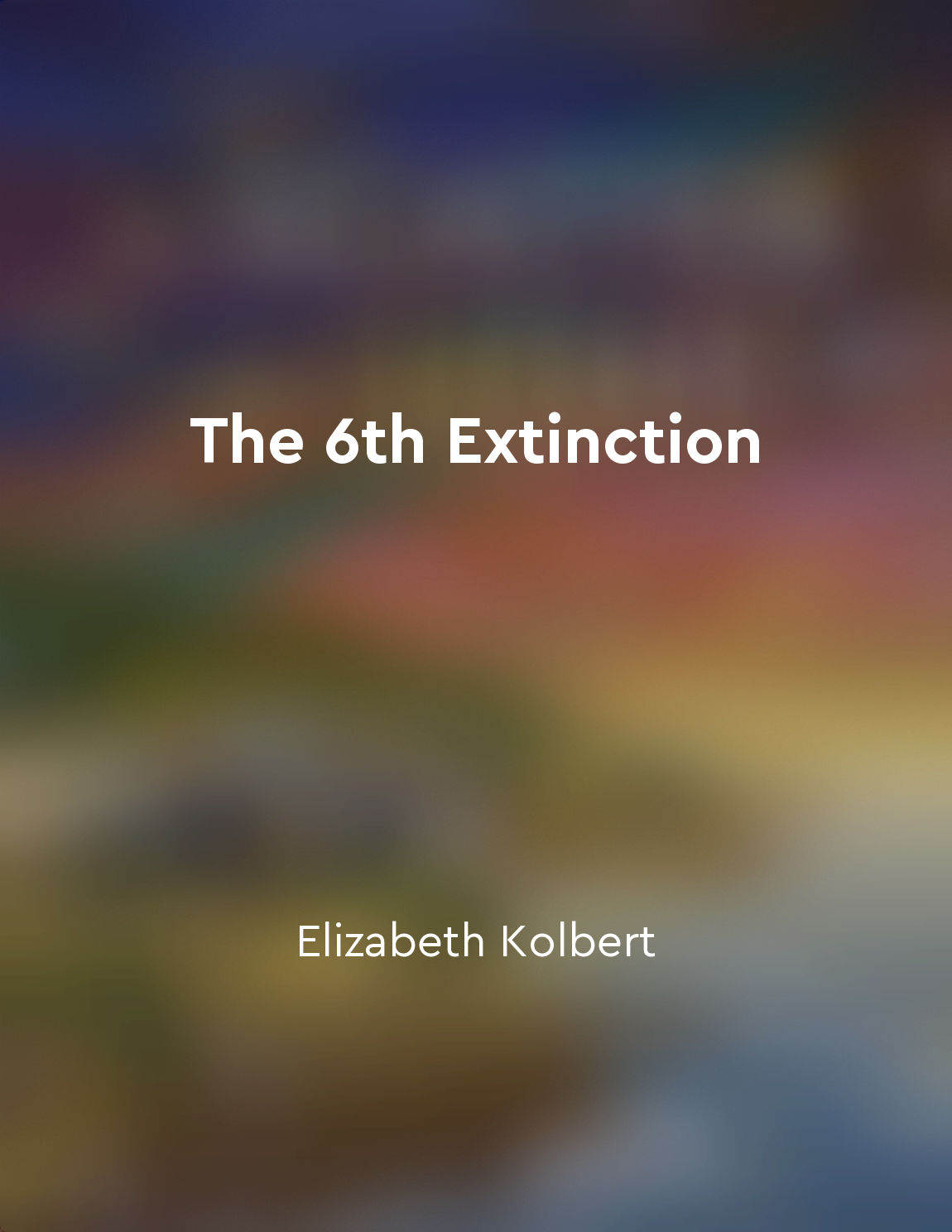The loss of biodiversity is a major consequence of climate change from "summary" of The Uninhabitable Earth by David Wallace-Wells
One of the most devastating impacts of climate change is the loss of biodiversity. As temperatures rise and weather patterns become more extreme, many species are struggling to survive in their changing habitats. From polar bears in the Arctic to coral reefs in the tropics, ecosystems around the world are in danger of collapse. The interconnectivity of species means that the loss of one can have ripple effects throughout an entire ecosystem. For example, as certain plant species disappear, the animals that rely on them for food may also face extinction. This disruption can lead to a domino effect, ultimately threatening the stability of entire ecosystems. Climate change is not only causing species to go extinct but is also reducing overall biodiversity. As habitats shrink and become fragmented, species have less room to adapt and thrive. This loss of genetic diversity can make populations more vulnerable to disease and other environmental stressors, further accelerating the decline of biodiversity. The loss of biodiversity has far-reaching consequences for human society as well. Many of the essential services that ecosystems provide, such as clean water, pollination, and carbon sequestration, rely on a diverse array of species working together. As biodiversity declines, these services become less reliable, putting human well-being at risk. Efforts to mitigate climate change and protect biodiversity must go hand in hand. By reducing greenhouse gas emissions and preserving natural habitats, we can help slow the loss of biodiversity and protect the ecosystems that sustain life on Earth. The stakes are high, but with concerted effort, we can still make a difference in preserving the rich tapestry of life on our planet.Similar Posts
Economic growth relies on energy consumption
Energy consumption is the lifeblood of economic growth. Without sufficient energy, economies cannot expand, businesses cannot o...

Scientific knowledge empowers humanity
Scientific knowledge has been a key factor in empowering humanity throughout history. It has enabled us to understand the world...
Parasitism, mutualism, and commensalism are types of symbiotic relationships
In nature, organisms often interact with each other in various ways. These interactions can be classified into different types ...
Our relationship with nature must evolve
The idea that our relationship with nature must evolve is a central theme in The End of Nature. McKibben argues that as human a...
The concept of keystone species is key to ecosystem health
The concept of keystone species reveals a fundamental truth about how ecosystems operate. Just as an arch depends on its keysto...

Coral reefs are particularly vulnerable to environmental changes
Coral reefs, with their intricate structures and vibrant ecosystems, are often described as the "rainforests of the sea". Howev...
The Earth system is complex and interconnected
The Earth is a complex system with various interconnected components that work together to sustain life on our planet. Everythi...
Conservation efforts are crucial for preserving Earth's biodiversity
Preserving Earth's biodiversity is a pressing concern for humanity. The intricate web of life on our planet is a product of bil...
The importance of preserving biodiversity
Preserving biodiversity is crucial for the health and well-being of our planet. The interconnectedness of all living things mea...
Our understanding of nature is changing forever
In the past, we humans have viewed nature as something outside of ourselves, something to be controlled and exploited for our o...
